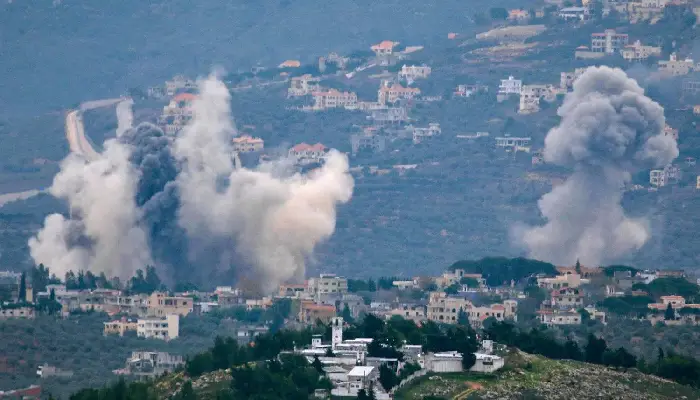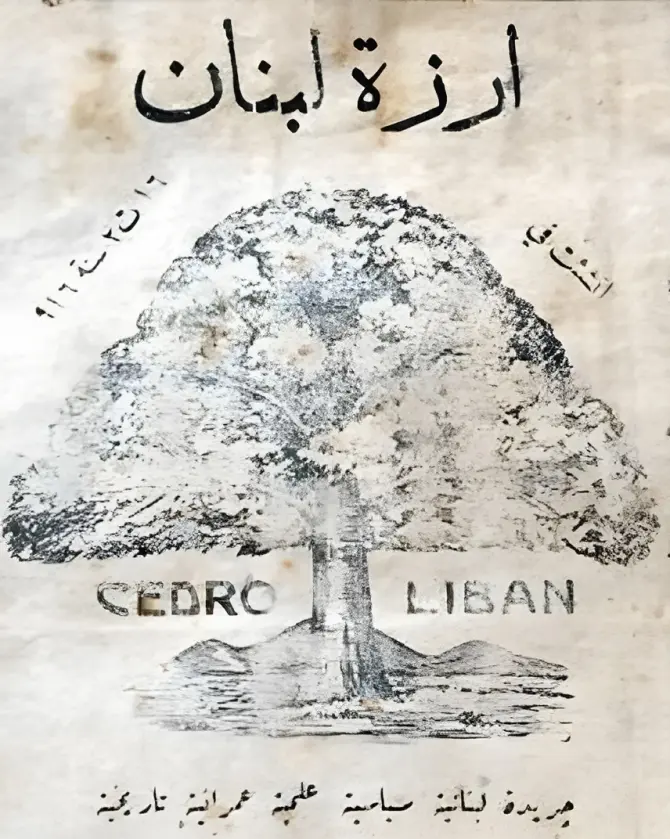(Translated from Arabic: https://www.asasmedia.com/news/399390/ حرب-لبنان-صارت-حتميّة)
This is what Western diplomats are telling Lebanese officials and politicians about the “Completed Gaza War” and the “Inevitable Lebanon War”:
– Israel’s mission in Gaza will be completed, regardless of cost and duration.
– Hochstein’s old-new proposal has an expiration date, and that date is set by the war.
– Opening the southern Lebanese front is inevitable if we do not understand the above two premises.
More importantly, Westerners tell their Lebanese counterparts not to count on illusory propaganda and information from posts and fake news. The reality is somewhere else.
Westerners first underscore that Israel will accomplish its mission in Gaza. Forget all that you hear, see or wish for. After October 7, there will be a new Gaza where a scenario not unlike that of 1982 Beirut will obtain, even if in different form. The Hamas leadership will leave, and there will be a new beginning.
What Thomas Friedman perceived between his writing in New York and his writing from Israel is the reality one must understand. The prominent New York Times journalist began by critiquing Israel’s behavior after October 7. But when he flew there and met its officials, people and institutional cadres, he wrote that he discovered another Israel he previously did not know. He sensed that Israel is determined to go much beyond the end of any escalation: To do otherwise would be to accept its own demise.
There are two battles going on right now in Israel: The battle for Israel’s life and death, and the battle for Netanyahu’s political life and death. The two battles have become one and there is no stopping them.
Someone has taken an irrevocable decision: The aftermath of October 7 is a test of history, the test of whether the existence of Israel is a transient and short-lived historical incident, or whether that dawn attack in October is itself a never-to-be-repeated incident – and this is the key to what is happening and what will happen.
In this context, all the taboos have fallen along with the complexities arising out of the numbers of casualties, deaths, losses, and even the prisoners and hostages and such other limitations from before October 7.
Take note
The decision makers in Israel believe that three months since the start of their war they are on the right track to finish the war and accomplish its mission.
How? This is what Westerners tells us about their state of mind:
Militarily and in the field: Those leading Israel’s war believe that they have reached the heart of Gaza. According to them, about 3,500 rockets were fired on Israel on October 7 (Hamas says 5,000). During the remaining days of the same month, the number rose to 9,000 rockets. In November, that number tumbled down to the hundreds. Same for December. In other words, Hamas’s capacity to do harm has almost vanished.
Politically: Domestically, Israel has returned to what it was during the 1970s: An army that has a state. Not the other way around. It is the army that decides and manages everything. The latest conflict within the government is evidence. The “resistance axis” media made much of it but did not say that the conflict between the ministers was over the pending investigation into October 7 and those responsible for it. In other words, the Israeli mindset has already moved to the post-war phase.
In the Media and the Street: Local demonstrations by the prisoners’ families and opponents of Netanyahu have completely subsided. They, of course, have not disappeared, but their actions have, and this what matters in politics and the mechanics of decision-making. The demonstrations of the first days have ceased. The prisoners’ families have gone to Qatar to demand its intervention with Hamas. This is a very telling change.
Externally: The same developments have also materialized, again according to what Westerners have registered in the convictions of Israel’s leadership. The demonstrations abroad have also diminished, after a massive support for the Palestinians during the first weeks. Right now, sympathy is limited to the expatriate Muslim communities in some European cities, which is very useful to the Zionists because it provokes Western sensitivities where those Muslim communities are located. This sympathy is also raising the ire of the radical right wing in the West, which in turn reflects positively on Israel, according to the Zionist leadership’s calculus.
Here, they give a single example: The idea of a global demonstration on New Year’s Eve and blockading the US embassies across the world was a fiasco. In the Western press and public opinion, they also have drawn conclusions from what happened to the president of Harvard University, and before her to the president of the University of Pennsylvania. In their thinking, this is a very significant development. To be forced to resign in spite of everything is the factual outcome. The initial uproar was a mirage.
The fact is that this movement has no outlet in America itself. To mobilize the “Arabs and Muslims of Washington” against Biden is to indirectly endorse Biden, which is what Netanyahu wishes for.
Economically: The war did not lead to any worldwide crisis. Two numbers suffice: The world’s financial markets closed last year on the upside, and the price of the barrel of oil is down.
Blinken and the Post-War Scenarios
Politically, Blinken’s latest tour focused on reconstruction, i.e. a post-war scenario. Here too, there is a conviction that the war is over. Even Erdogan volunteered his country’s role in the “new security architecture”. Everyone is in this mindset, to the point where there already are facilitations for travel for the people of Gaza, which many may not like. For all the preceding, Westerners say that the Zionists are moving forward with their war until they achieve their goals.
Nothing will deter them anymore. Not domestic public opinion. Not foreign public opinion. Neither will Washington’s pressure, despite its generosity and goodwill to their war. Only one thing will deter them: The battlefield, and what is dangerous is that they believe the battlefield is working in their favor.
Here the Westerner observers turn in their account of the thinking and behavior of the Zionists to this key phrase: The Gaza mission will come to an end, but it won’t end in Gaza. It won’t end without the full and absolute conviction that the October 7 event with never happen again on any other day and in any other place.
Which opens wide open the file of the Lebanese south on the issue of Hezbollah and the Iranian factor with their Middle Eastern complications. In this context, the Westerners say that Tehran was the first one to understand the game and its repercussions from its first moment. It washed its hands off and disowned the Hamas attack. But then it feared losing its acquired gains and hoped for a share in the resolution. It faltered and wavered, before it decided to play its agents’ cards.
But it quickly realized that it really has only two cards: The Houthis on the Red Sea, and Hezbollah in south Lebanon. Its Iraqi card has a low return on investment. The Golan card is essentially prohibited after Bashar Assad took the decision of staying out of the war and denying the use of his territory to that end. Assad went further by deciding to shut down the Houthis’ offices in Damascus and expel its occupants within hours; a clear unambiguous message to whom it may concern.
Hence Tehran’s initiation of the Red Sea piracy strategy, which quickly surprised it with its limits. In fact, it did not foresee that it would backfire, since its first casualty was China, Iran’s foremost importer of its goods and its foremost exporter of hard currency. This was coincident with the punitive measure taken by Beijing against Tehran to cease trade with it, followed by a decisive stance by China against the Houthis at the United Nations Security Council (UNSC).
Which, in the opinion of the Westerners, leaves Lebanon as the sole card remaining in Tehran’s hands. And so, the conversation turned again to, and about, Lebanon.
For that specific reason, Amos Hochstein decided to return to Beirut. Netanyahu definitively wants a war with Lebanon. As a prelude, he is raising the subject of the borders, the implementation of UNSC 1701 and the Litani line. The Westerners go even further in asserting that Netanyahu will not stop there; he will demand much more. Once done with Gaza, he will at the very least demand the withdrawal of precision missiles. Otherwise, he will launch an all-out war.
For his part, Biden is focused on his re-election. Everything domestically and externally will be mobilized for that goal. Which is why he has dispatched his “gas envoy” for a peaceful Lebanese resolution, the very proposal brought by Hochstein to Lebanon at the end of August. A mere five weeks before the Gaza war. Included in that great American plan for a comprehensive Arab Israeli settlement was the normalization with the Saudis in tandem with a solution to Palestine, a final disengagement in Lebanon, and an economic development outlook for the entire region, beginning with an Indian-European corridor. This is the plan that is believed to have triggered the Hamas attack of October 7.
But this plan is back again on the hot burner, with a corollary of blowing up the entire region and turning it into suburbs of misery and woe. Having been informed, Hezbollah was quick to hedge its bets with a limited proposal: No Shebaa Farms in the deal. But it knows that this is a detail whose purpose is to blow smoke in the eyes. The Shebaa Farms are mentioned in UNSC 1701, even if indirectly, and can easily be included in a negotiation. The real problem of the Shebaa Farms is with Syria, legally and internationally, anything else being pedestrian arguments or part of a strategy.
Yet the fact of Hezbollah’s quick raising the question of the Shebaa Farms is important, according to the Westerners. It signals one of two things: Either Hezbollah seeks to fool its followers that the Shebaa Farms is part of Hezbollah’s war gains, or it is raising the issue so as to be able to reject the deal altogether. The Westerners add: If the first alternative is what Hezbollah wants, it can be granted that wish. But there will be no gifts to Hezbollah on the matter of the presidency because no one can deliver on it absent an understanding among the Lebanese and because such a deal does not fit into the specifications for the presumptive president. If, on the other hand, the second alternative is the object, namely that Hezbollah wants to obstruct, then it will lead to war.
Furthermore, the Westerners believe that this offer will no longer be available after the Gaza mission is completed, regardless of its outcome. If Netanyahu is defeated, he will not accept a continuation of the status quo in the south of Lebanon. If he wins, his refusal is likely to be more unyielding, which means that his move against Lebanon will be a foregone conclusion, regardless of the victory narratives of the “resistance axis”.
What will the Iranians do then?
A first estimation by the Westerners is that Khamenei will face two options: Either he agrees to the Biden plan, which would save him and the region. Or he will take the bitter pill from the hands of Suleimani’s killers by this year’s end.
Again, only the field has the power to negate all the above. And it seems to be pregnant with much catastrophic and bloody results.












